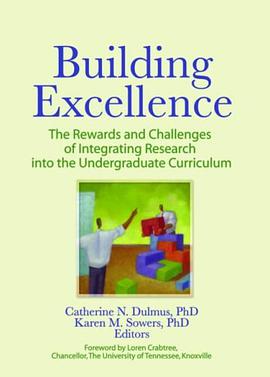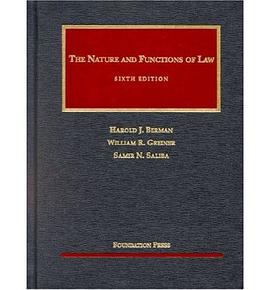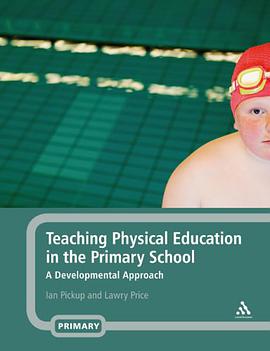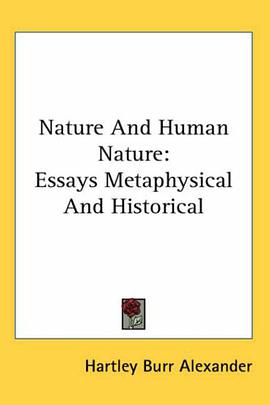

具体描述
An increasing number of contemporary scientists, philosophers and theologians downplay their professional authority and describe their work as simply 'telling stories about the world'. If this is so, Stephen Prickett argues, literary criticism can (and should) be applied to all these fields. Such new-found modesty is not necessarily postmodernist scepticism towards all grand narratives, but it often conceals a widespread confusion and naivety about what 'telling stories', 'description' or 'narrative', actually involves. While postmodernists define 'narrative' in opposition to the experimental 'knowledge' of science (Lyotard), some scientists insist that science is itself story-telling (Gould); certain philosophers and theologians even see all knowledge simply as stories created by language (Rorty; Cupitt). Yet story telling is neither innocent nor empty-handed. Prickett argues that since the eighteenth century there have been only two possible ways of understanding the world: the fundamentalist, and the ironic.
作者简介
目录信息
读后感
评分
评分
评分
评分
用户评价
这本书,嗯,怎么说呢,它就像是一本打开的古老卷轴,但里面描绘的景象又充满了现代的张力。我拿到这本书的时候,首先吸引我的是它那种深邃的封面设计,仿佛能把我拉进一个完全不同的时空。内容上,它没有那种咄咄逼人的说教感,更多的是一种娓娓道来的叙事,让你在不知不觉中开始思考那些宏大叙事背后的细微肌理。读起来,感觉就像是跟一位见多识广的长者对饮,他不会直接告诉你答案,而是抛出一些看似不相关的片段,然后让你自己去拼凑那个完整的图景。文字的编排非常考究,节奏感把握得极好,有时候会突然加快,让你喘不过气,有时候又会放慢,让你有时间去细细品味每一个字眼。这本书的魅力就在于它的多义性,不同的人在不同的心境下读,可能会得出截然不同的感悟,这或许就是它最成功的地方吧。它成功地在一种优雅的语境下,探讨了一些非常尖锐的问题,没有丝毫的火药味,全凭文字的力量在碰撞。
评分这本书给我的感觉是,它像一个精密的仪器,通过不同的光学棱镜,将我们习以为常的某些概念分解、重构,然后以一种全新的面貌呈现出来。它的结构非常松散,却又无比紧密,每一个章节都像是一块独立的宝石,但将它们串联起来的丝线,只有真正深入阅读才能体会到。作者的视野非常开阔,他似乎总能从一个非常微小的观察点切入,然后一路上溯,直到触及到最原始的动力源。阅读过程中,我发现自己常常会不由自主地在脑海中进行“场景再现”,那些文字在他笔下仿佛都有了颜色和温度。它不是一本让人读完就束之高阁的书,而是一本需要反复品味、时常回去翻阅的参考书。每次重读,都会有新的感悟冒出来,这大概是优秀作品的共同特质吧。
评分这本书的结构实在是太精妙了,简直像一个复杂的迷宫,但你永远不会迷失方向,反而会因为每一次转折而感到豁然开朗。作者的笔触非常细腻,尤其是在描绘那些细微的情感波动和心理变化时,简直是入木三分。我特别喜欢它那种时而跳跃,时而沉潜的叙事手法,它不像那种平铺直叙的学术著作,更像是一部充满隐喻的文学作品。读的时候,我常常需要停下来,合上书本,让那些画面和概念在我脑海里盘旋一阵子。它所构建的世界观非常宏大,但作者却总能找到一个非常个人化的切入点,让你觉得这些看似遥远的问题,其实就发生在你我身边。这种平衡感掌握得非常到位,既有哲学的深度,又不失阅读的乐趣。读完之后,我有一种被洗礼的感觉,看待世界的方式似乎也多了一层滤镜,变得更加复杂和立体了。
评分说实话,一开始我有点担心这本书会过于晦涩难懂,毕竟主题听起来就不是那么“轻松愉快”的类型。然而,实际的阅读体验完全超出了我的预期。作者的语言非常有力量,虽然用词考究,但绝不矫揉造作,反而有一种直击人心的力量。它不是那种试图迎合读者的书,而是邀请你进入它的思维空间,共同进行一场深入的探索。我尤其欣赏它在处理那些敏感议题时的那种克制与精准,没有过度渲染,也没有刻意回避,只是冷静地陈述,然后让事实和逻辑自己说话。这本书的节奏处理得非常高明,时而像一篇散文,抒情而悠远;时而又像一份严谨的报告,逻辑清晰,环环相扣。每一次翻页,都像是在揭开一个新的谜底,但这个谜底往往引出更多更深层次的疑问,让人欲罢不能。
评分这本书的阅读体验,用一个词来形容,就是“沉浸”。它不是那种可以放在咖啡桌上偶尔翻阅的书籍,而是一旦开始,你就得全身心投入进去。作者构建的那个对话场域非常迷人,各种看似不相关的元素被巧妙地编织在一起,形成一张巨大的信息网。你必须非常专注地去捕捉那些潜藏在文字之下的弦外之音。我读到好几处地方,感觉自己的思维被狠狠地拉伸了一下,那种“原来可以这样思考”的震撼感,是很多同类书籍无法给予的。而且,这本书的语言风格非常有辨识度,它有一种独特的韵律感,读起来有一种古典的庄重,但内核却是极度现代和批判性的。它不会给你提供任何廉价的安慰,而是鼓励你去直面那些最基本、最核心的困境,这才是它真正价值所在。
评分 评分 评分 评分 评分相关图书
本站所有内容均为互联网搜索引擎提供的公开搜索信息,本站不存储任何数据与内容,任何内容与数据均与本站无关,如有需要请联系相关搜索引擎包括但不限于百度,google,bing,sogou 等
© 2026 book.quotespace.org All Rights Reserved. 小美书屋 版权所有




















